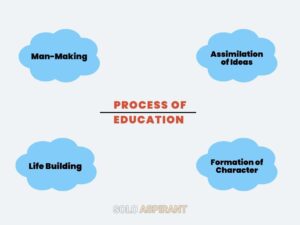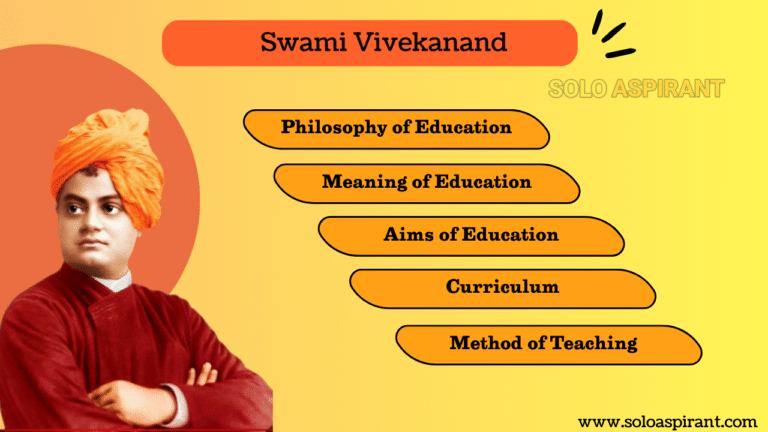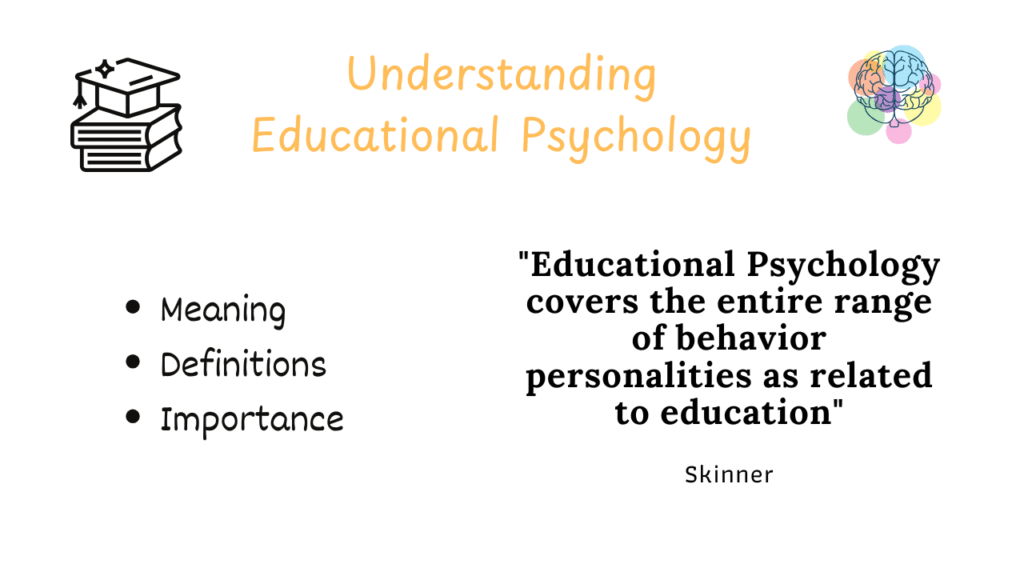Swami Vivekananda was born on January 12, 1863, in a family headed by Vishwanath Datta and Bhubeneshwari Devi.
His original name was Narendranath Datta. From childhood, he was drawn to spirituality, meditation, and the pursuit of truth.
Later, he became the disciple of the great saint Ramakrishna Paramhansa, who deeply influenced his thoughts and spiritual outlook.
Organisation founded:
- He founded the Ramakrishna Mission in 1873 at Calcutta.
- He also established the Advaita Ashrama, which worked for the spread of Vedantic philosophy, education, and social service. His organizations continue to work worldwide, spreading the message of peace, service, and universal brotherhood.
Philosophy of Education
According to his philosophy,
Education is a continuous process that should cover all aspects of life: physical, mental, emotional, moral, and spiritual.
It should not be confined only to the classroom or books, but should prepare a complete human being.
His philosophy was based on Vedanta and the Upanishads, which emphasize self-realization and the unity of existence. He believed education is not just about book learning but should focus on the development of the inner self.
Meaning of Education
Swami Vivekananda defined education as a process of
- Man-making,
- life-building,
- Assimilation of ideas,
- and formation of character.

“Education is the manifestation of the perfection already in man”.
He explained that spiritual and material knowledge already exists in man but is hidden behind the “curtain of ignorance.” True education helps in removing this curtain and unfolding the inner potential of the learner.
Aims of Education
- Education should be Self-realization – It should help man understand his real self and purpose in life.
- Rooted in Spirituality – Education should be rooted in spirituality, but at the same time, it should promote science and technology for material progress.
- Self-reliance Education – It should make a person independent, capable of earning, and self-sufficient.
- Education Should Promote Universal Brotherhood – He emphasized love, tolerance, and oneness among all human beings, beyond caste, creed, and religion.
- Development of Moral and Character – The highest purpose of education is to build character and strengthen moral values.
- Vocational Education – Along with philosophy and spirituality, he stressed practical education that would prepare learners for life and livelihood.
Curriculum
- According to him, the curriculum should be broad-based and holistic. It must include:
- Study of Vedas, scriptures, religion, philosophy, and Western science to balance traditional and modern knowledge.
- Regional language (Mother tongue), Sanskrit, and any linkage language to preserve culture and communication.
- Vocational education, including the practice of yoga, arts, and literature, would help in physical fitness and creativity.
Methods of Teaching
- Swami Vivekananda emphasized that methods of teaching should awaken the inner strength of the learner.
- Self-study – Learning by doing, which encourages independent thinking.
- Concentration Method, where focus and discipline help in the assimilation of knowledge.
- Discussion Method, which promotes critical thinking and the exchange of ideas.
He said that “You cannot teach a child to grow; you can only guide.” According to him, “One is a teacher for oneself.” The outer guide only creates a suitable environment, which ignites the internal spirit.
Hi, I’m Amit Kumar — the author of SoloAspirant.
I am a part-time blogger and tutor with a background in Physics and a B.Ed. Through this platform, I share study materials, notes, and PYQ PDFs curated to help aspirants prepare effectively for teaching and competitive exams.


